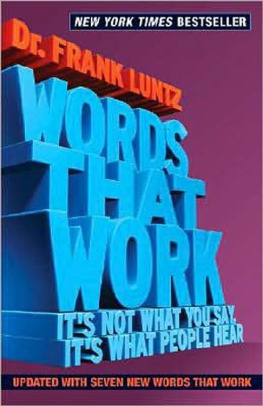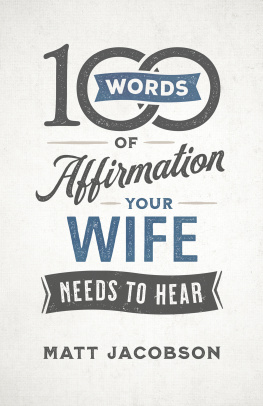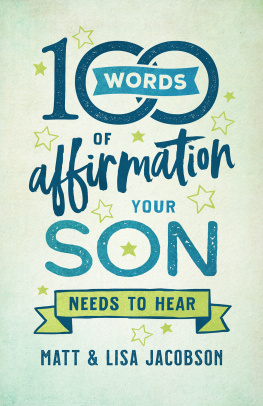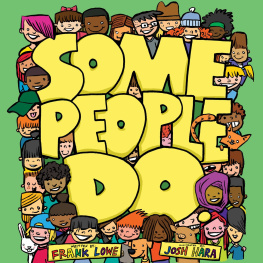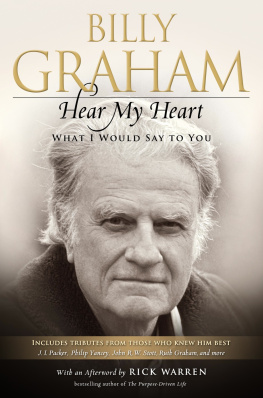Frank Luntz - Words That Work: Its Not What You Say, Its What People Hear
Here you can read online Frank Luntz - Words That Work: Its Not What You Say, Its What People Hear full text of the book (entire story) in english for free. Download pdf and epub, get meaning, cover and reviews about this ebook. year: 2007, publisher: Hachette Books, genre: Politics. Description of the work, (preface) as well as reviews are available. Best literature library LitArk.com created for fans of good reading and offers a wide selection of genres:
Romance novel
Science fiction
Adventure
Detective
Science
History
Home and family
Prose
Art
Politics
Computer
Non-fiction
Religion
Business
Children
Humor
Choose a favorite category and find really read worthwhile books. Enjoy immersion in the world of imagination, feel the emotions of the characters or learn something new for yourself, make an fascinating discovery.
- Book:Words That Work: Its Not What You Say, Its What People Hear
- Author:
- Publisher:Hachette Books
- Genre:
- Year:2007
- Rating:3 / 5
- Favourites:Add to favourites
- Your mark:
- 60
- 1
- 2
- 3
- 4
- 5
Words That Work: Its Not What You Say, Its What People Hear: summary, description and annotation
We offer to read an annotation, description, summary or preface (depends on what the author of the book "Words That Work: Its Not What You Say, Its What People Hear" wrote himself). If you haven't found the necessary information about the book — write in the comments, we will try to find it.
Frank Luntz: author's other books
Who wrote Words That Work: Its Not What You Say, Its What People Hear? Find out the surname, the name of the author of the book and a list of all author's works by series.
Words That Work: Its Not What You Say, Its What People Hear — read online for free the complete book (whole text) full work
Below is the text of the book, divided by pages. System saving the place of the last page read, allows you to conveniently read the book "Words That Work: Its Not What You Say, Its What People Hear" online for free, without having to search again every time where you left off. Put a bookmark, and you can go to the page where you finished reading at any time.
Font size:
Interval:
Bookmark:
WORDS
THAT
WORK
Its Not What You Say,
Its What People Hear
DR. FRANK LUNTZ

This book is dedicated to the 300 million Americans
who make my day-to-day life so
interesting and challenging, often annoying, but always rewarding.
Thanks to you, I am never bored.
Most people who bother with the matter at all would admit that the English language is in a bad way. 1
G EORGE O RWELL (1946)
S eptember 18, 2004: Writer, socialite, political gadfly Arianna Huffington, a conservative-turned-liberal political-activist-to-the-stars, invites thirty-five of Hollywoods most important power players to her Brentwood home. These are not your run-of-the-mill Democrats. They are members of the Hollywood political elite, deeply concerned about the direction of the U.S. presidential campaign and in outright panic about the state of the nation.
For them, election 2004 is the battle royale for the heart and soul of America. Having watched their victory in 2000 stolen from them by the Supreme Court, they feel they are witnessing once again the disintegration of a national election before their very eyes. Hollywood Democrats had gladly flocked to John Kerry, but now they think he is blowing it in the wake of the Republican National Convention and the drip-drip-drip of the Swift Boat Vets attack ads. Bush has surged to a five- to eight-point lead, depending on which poll you believe. Everywhere, Democrats are asking: Why is the President winning when the economy is weak, the war in Iraq isnt going well, and gas prices have climbed above $2 a gallon for the first time ever? Why isnt Kerry connecting with the public? Whats wrong with the words hes using? Whats the problem with the way hes communicating?
And so the luminaries of the Hollywood Left arrive at Huffingtons Brentwood mansion to listen to a guest speaker from Washington, D.C., and talk things through. They drive up in their open-air Mercedes, BMWs, and Jags that cost almost as much as a house in Omaha. Warren Beatty is there, sitting next to Rob Reiner. Larry David walks in a little late and stands off to the side. Norman Lear, creator of All in the Family, Maude, Good Times, and a dozen other TV shows, positions himself toward the rear, just behind actress Christine Lahti. Well-known writers, directors, and producers with Oscars and Emmys on the mantels of their pool houses crowd around. People of impeccable Hollywood pedigree, all. And who do they come to learn from?
Remarkably, a Republican pollster.
There I am, the man who helped develop the language to sell the Contract with America and deliver a Republican majority in the House of Representatives for the first time in forty years. The man who worked for Rudy Giuliani, two-time Republican mayor of a city where Democratic voters outnumbered Republicans 5-to-1. The man who has been working behind the scenes for the past ten yearsin debate prep sessions and television network green rooms, in the halls of Congress and in state capitals across the countryplaying my own small part in the Republican ascension and in the Democratic collapse.
Why have I gone there, into what some of my clients and many of my colleagues would consider enemy territory? More importantly, why do the Hollywood elite welcome me? How do they know Im not part of some nefarious Karl Roveian disinformation campaign, plotting political pranks and electoral sabotage?
The answer is simple: Although my political clients may come from one side of the aisle, what I do is fundamentally nonpartisan. The ideas and principles about effective language I was to share with them in Brentwood that afternoon apply equally to Democrats and Republicans. And, frankly, I wanted to see the inside of Ariannas house.
Indeed, the lessons of effective language transcend politics, business, media, and even Hollywood. My polling firm has worked for more than two dozen of the most elite Fortune 100 companies. We have written, supervised, and conducted almost fifteen hundred surveys, dial sessions, and focus groups for every product and politician imaginablerepresenting more than a half million unique individual conversations. What we have learned applies to bankrupt airlines and overbooked hotels, soft drink makers and fast food providers, banks and credit unions. Good language is just as important to twentieth-century trendsetters like IBM and twenty-first-century innovators like Google as it is to blue-blood law firms whose partners ancestors were on the Mayflower and twenty-one-year-old soon-to-be entrepreneurs whove been in the United States exactly one month.
Language, politics, and commerce have always been intertwined, both for better and for worse. What I presented to that glitterati crowdand what I proffer to my political and corporate clients every day, seven days a week, 365 days a year (literally)are the precise tools and insights of political and commercial wordsmithing. These tools apply broadly to almost any endeavor that involves presenting a message, whether its a day-to-day event like talking your way out of a speeding ticket or into a raise, or something more substantial like creating an effective thirty-second commercial, crafting a fifteen-minute speech to your employees, or writing an hour-long State of the Union address.
In the pages that follow, my basic advice to readers will be the following:
Its not what you say, its what people hear.
You can have the best message in the world, but the person on the receiving end will always understand it through the prism of his or her own emotions, preconceptions, prejudices, and preexisting beliefs. Its not enough to be correct or reasonable or even brilliant. The key to successful communication is to take the imaginative leap of stuffing yourself right into your listeners shoes to know what they are thinking and feeling in the deepest recesses of their mind and heart. How that person perceives what you say is even more real, at least in a practical sense, than how you perceive yourself.
When someone asks me to illustrate the concept of words that work, I tell them to read Orwells 1984 and then see the movie. In particular, I refer them to the book passage that describes Room 101or as Orwell basically describes it, the place where everyones personal, individual nightmares come true. If your greatest fear is snakes, you open the door to a room full of snakes. If your fear is drowning, your Room 101 fills to the brim with water. To me, this is the most frightening, horrific, imaginative concept ever put on paper, simply because it encourages you to imagine your own Room 101. Words that work, whether fiction or reality, not only explain but also motivate. They cause you to think as well as act. They trigger emotion as well as understanding.
But the movie version of 1984 denies the viewer the most powerful aspect that makes Room 101 work: ones own imagination. Once you actually see Room 101, it is no longer your vision. It becomes someone elses. Lose imagination and you lose an essential component of words that work.
Just as a fictional works meaning may transcend authorial intention, so every message that you bring into the world is subject to the interpretations and emotions of the people who receive it. Once the words leave your lips, they no longer belong to you. We have a monopoly only on our own thoughts. The act of speaking is not a conquest, but a surrender. When we open our mouths, we are sharing with the worldand the world inevitably interprets, indeed sometimes shifts and distorts, our original meaning.
After all, who hasnt uttered the words But thats not what I actually meant?
Just ask former President Jimmy Carter. On July 15, 1979, three years to the day from his triumphant nomination at the Democratic National Convention, he addressed millions of Americans to explain what he called Americas crisis of confidence. That phrase means nothing to most Americanswe all know it as his infamous malaise speech, despite the fact that he never uttered the word malaise even once. What led up to that linguistic misrepresentation of historic proportions will be addressed later in this book.
Font size:
Interval:
Bookmark:
Similar books «Words That Work: Its Not What You Say, Its What People Hear»
Look at similar books to Words That Work: Its Not What You Say, Its What People Hear. We have selected literature similar in name and meaning in the hope of providing readers with more options to find new, interesting, not yet read works.
Discussion, reviews of the book Words That Work: Its Not What You Say, Its What People Hear and just readers' own opinions. Leave your comments, write what you think about the work, its meaning or the main characters. Specify what exactly you liked and what you didn't like, and why you think so.

